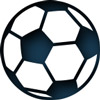
Young adults and teenagers
Cardiac problems in active sports people are rare, but when they occur can be devastating, affecting even those considered fit and well.
In many countries such as Italy and the US young people participating in sport at any level routinely undergo cardiac screening.
The European Cardiac Society recommendations are for cardiac screening in those over 12 participating in any form of competitive sports.
Screening has not been adopted in this country, but the charity CRY is campaigning for cardiac screening with an ECG for all 14 year olds.
At The Physicians’ Clinic we are able to provide a comprehensive screening in those aged 12 years and above which includes an ECG, echo and consultation all within the same visit.

Amateur athletes
A cardiac screen is available for those already involved in sports and for those about to embark on a new sports regimen. This involves an ECG, echo and consultation all within the same visit.
A cardiac check in ‘veteran’ athletes is also designed to look for evidence of coronary artery disease, which is more common in those over 35 years.
In addition, although long-term exercise is overall more healthy for an individual, there is a higher incidence of atrial fibrillation (irregular heart beat) in athletes who continue to participate in sport over the age of 35 years. In veteran atheletes the screening involves an ECG,echo and exercise treadmill test.
A lipid (cholesterol) test may also be performed if not recently checked by your GP.

Professional athletes/teams
Dr Varnava sees many premiership football teams for their routine cardiac screening (West Ham, Fulham, Tottenham Hotspurs, Queens Park Rangers, Watford and Stoke City) and has probably the widest practice in this field.
In addition, Dr Varnava screens football scholars (under 16s) and is on the list of recognized cardiologists for the FA.
Dr Varnava also sees the England Women’s Rugby team and many cyclists.
With Cardiodirect (a diagnostic service with mobile facilities) Dr Varnava is able to offer a team screening service that can be brought to the clubs’ facilities for added convenience.

Diving
An unusual but recognised complication of diving can be the bends. This is due to the passage of bubbles from one side of the heart to the other during decompression.
Many ‘normal’ hearts have a small hole (a patent foramen ovale) that may allow this passage of bubbles.
In normal circumstances these holes lead to no ill effect, but during diving may become a problem.
A ‘bubble’ echo scan (see investigations) can detect these holes and allow a further assessment of whether they should be closed by a key hole operation.
If you are experiencing any of the symptoms above please contact us immediately to arrange an appointment.


